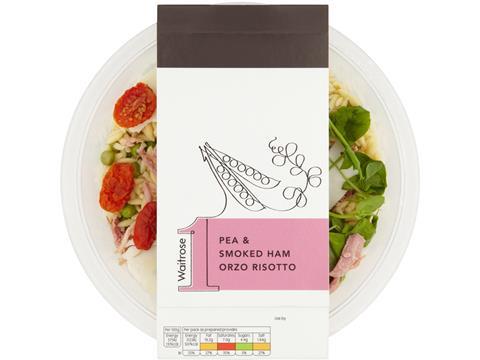
by Alex Chappell of Colt
Own-label is one of those intriguing sectors that’s been growing stronger over time, seemingly without anyone paying too much attention. Not so long ago own-label products were overly reliant on copy-cat solutions that were far from exciting or well considered, let alone competitive, but the sector has evolved to become vastly different today.
Globally, own label accounts for 16.5% of all purchases, however it’s growth in status among consumers is what I find most interesting. Where once retailers’ primary objective for own label brands was to create a lower price alternative at equivalent quality, they now aim to establish exclusivity and differentiation. How did this come about?
One key reason is that as the likes of Waitrose, Sainsbury’s and Tesco have become powerful brands in their own right, their own-label products have benefitted from a halo effect linked to wider brand communications. The connection people have with a particular store has become much deeper than it has been in the past.
Take Waitrose, their core messaging based on ‘championing British produce, treading lightly on the environment, supporting responsible sourcing and treating people fairly’ has recruited a consumer that now instinctively trusts their products over those of leading brands, or at the very least puts them on an equal standing.
Lidl and Aldi have created entire business models based on this developing trend. Would their businesses have flourished 10 or 20 years ago when consumers didn’t have such a defined relationship with where they did their weekly shop?
Of course the strategy is by no means innovative. Fortnum & Mason have been selling high-end own-brand since 1707. However, they are so very niche that they appeared to be the exception rather than the rule.
So the big question is whether the likes of Fortnum & Mason’s all-or-nothing approach is going to become the norm, and where does that leave big brands? Will we see businesses like Heinz needing to diversify their range or even create their own powerful sales platforms in order to re-establish their standing among consumers?
The success of online supermarkets such as Ocado makes this question less unlikely than it initially seems. Ocado has no stores and simply delivers products from it’s warehouses yet even it decided to move into the own-label market.
Creating your own successful sales platform today doesn’t necessarily mean opening 100 stores nationwide. Is a platform emerging that will offer leading brands the chance to ultimately cut out the middle man?
This development needn’t be limited to FMCG. Surely it’s only a matter of time before the likes of B&Q, Currys or Halfords start delving more deeply into their own branded goods as consumer expectations evolve. Fighting own-label on their own turf could prove tough for big brands across every sector but you can be sure that the challenge will lead to exciting new developments in innovation and product delivery.
Modern brands are very comfortable dipping their toe into any number of sectors to enhance their consumer footprint. There’s something to be said for this model as Amazon enter into the FMCG sector with AmazonFresh. Amazon have moved from online retailer to subscription TV, cloud storage, Kindle, Echo and more. Modern consumers are highly engaged with this type of brand metamorphosis and it could be where the future lies for established brands looking to re-establish themselves in the face of growing own-label competition.
While own-label is having it’s time in the spotlight, it’s the evolution of the brand owner that’s seen this perception change. The same growth will allow leading brands to continue to compete. By adapting, keeping focus on consumers’ shifting lifestyles, forecasting unmet needs and mapping out opportunities beyond their existing business models, they can build new types of relationships with their consumers.
One thing’s for sure, if your brand isn’t maximising it’s potential for own-label products, now’s the time to engage with your consumer, because doing your own thing today will help you really stand out tomorrow.
For more information, visit www.thisiscolt.com















